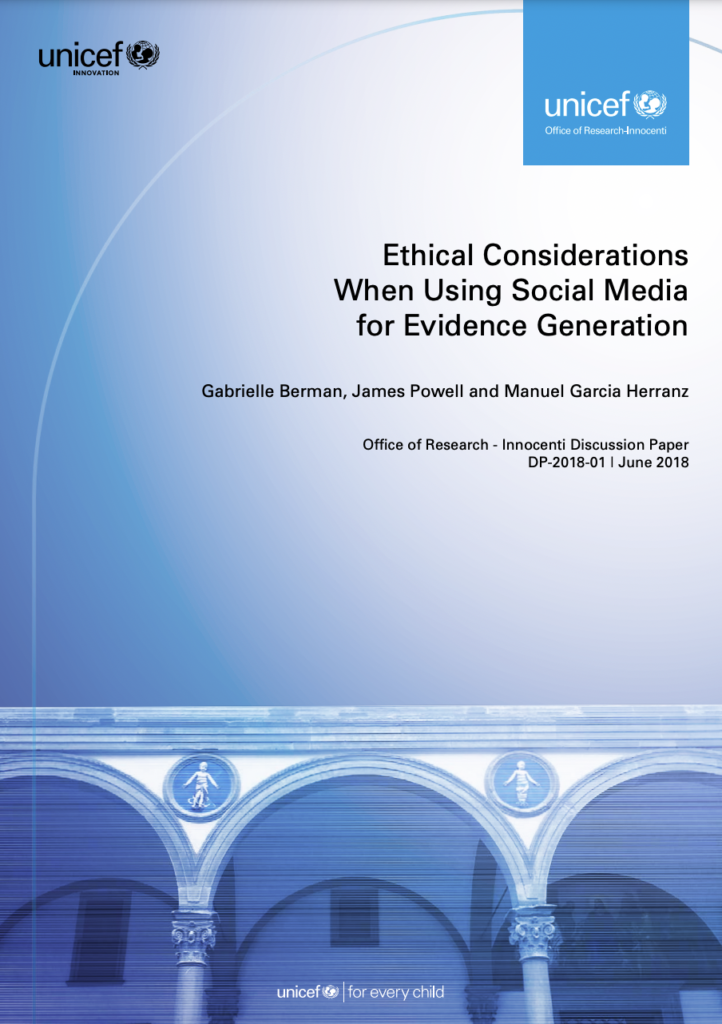Ethical considerations when using social media for evidence generation

There are significant ethical implications in the adoption of technologies and the production and use of the resulting data for evidence generation. The potential benefits and opportunities need to be understood in conjunction with the potential risks and challenges. When using social media to directly engage children and their communities, or when establishing partnerships with these organizations for data collection and analysis, adoption of these technologies and their resultant data should not be exclusively driven by short-term necessity but also by the long-term needs of our younger partners. When engaging with social media and indeed most technology, thoughtfulness, reflection and ongoing interrogation is required. This paper examines the benefits, risks and ethical considerations when undertaking evidence generation: (a) using social media platforms and (b) using third-party data collected and analysed by social media services. It is supplemented by practical tools to support reflection on the ethical use of social media platforms and social media data. Read more here.
You might also like
-
“Hey ChatGPT, what is missing from our reports?”: A Generative AI Use Case for Public Sector MERL
-
New resource: Tool for Assessing AI Vendors
-
What does the data say? Join us for a roundtable on the emerging evidence on GenAI for Social & Behavioral Change
-
Event: “Should we be using AI right now?” A conversation about the ethical challenges of the current moment
